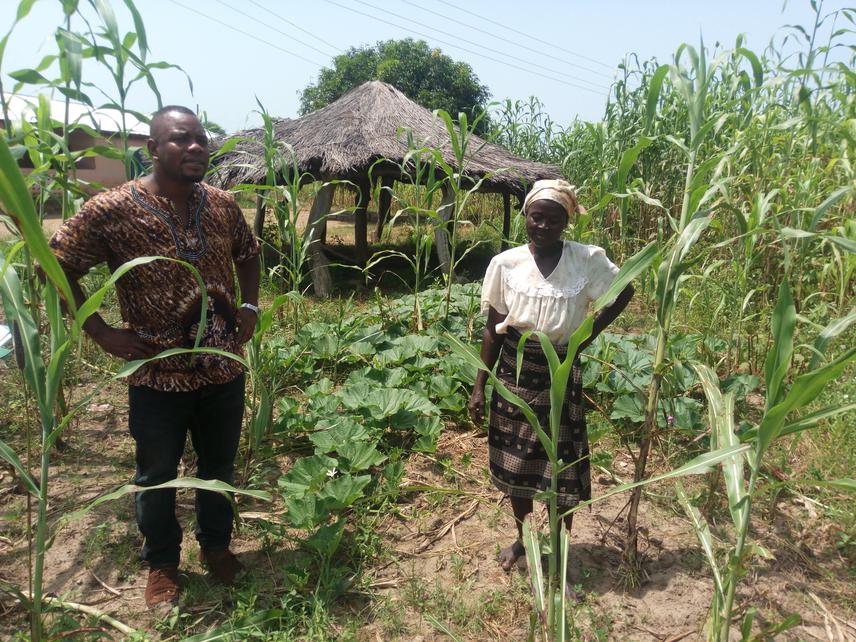Bright Boye Kumordzi
The Red Volta Valley (RRV) ecosystem in Ghana host migratory routes for elephants that moves between Burkina Faso, Ghana and Togo. Crop raiding by these transfrontier elephants is a challenge to communities in these areas and two retaliatory killings has been reported in the 2018 cropping season. This project seeks to employ a community-based approach to training and equipping community teams to mitigate crop raiding by elephants. While improving on elephant data collection and reporting, it will develop a mechanism to solicit cash and in-kind support from public and private institutions to sustain the crop raiding mitigation programs.

With a farmer inspecting her fields.
In response to continuous community hostility and killing of elephants in the 2018 cropping season in the Red Volta Valley (RVV) Ecosystem in Ghana, the Wildlife Division (WD) organized a stakeholder workshop to discuss elephant conservation in the RVV. The community representatives expressed their frustrations about the activities of the elephants in the area, inability of WD elephant taskforce to work alone and reiterated their commitment to help in managing elephants in the area. They believe that, elephants thought to be migratory, are now permanently resident in the area and highlighted the need for greater cooperation between WD and local communities.
This project will
1. Established, train and equip ten community-based Elephant Management Teams (EMTs) spread across the RRV ecosystem; these teams will be responsible for controlling crop raiding elephants and implementing elephant-related programs (Community sensitization, monitoring and reporting) at community level and will serve as formal contacts for WD.
2. Deploy a mobile data collection and reporting system; Through the deployment of a mobile data collection and reporting system (Early Detection and Warning Systems), trained community teams can collect and transmit information (Photo, GPS Co-ordinates, voices messages, movement, numbers, raids) on elephant activities permanent transects to a central reporting system to be managed by the WD. This system could provide authentic real time information on elephant movement for EMTs to better co-ordinate their response to elephant crop raiding activities and WD to plan for long-term elephant population monitoring in the area.
3. Set-up a mechanism for receiving and managing in-kind and cash donation to communities. Since logistical constraints has been a major issue to the sustainability of the community-based wildlife programs, the project will raise awareness about elephant management issues in the RRV ecosystem among private businesses and local government institutions and solicit support to sustain community involvement in elephant management in the area.